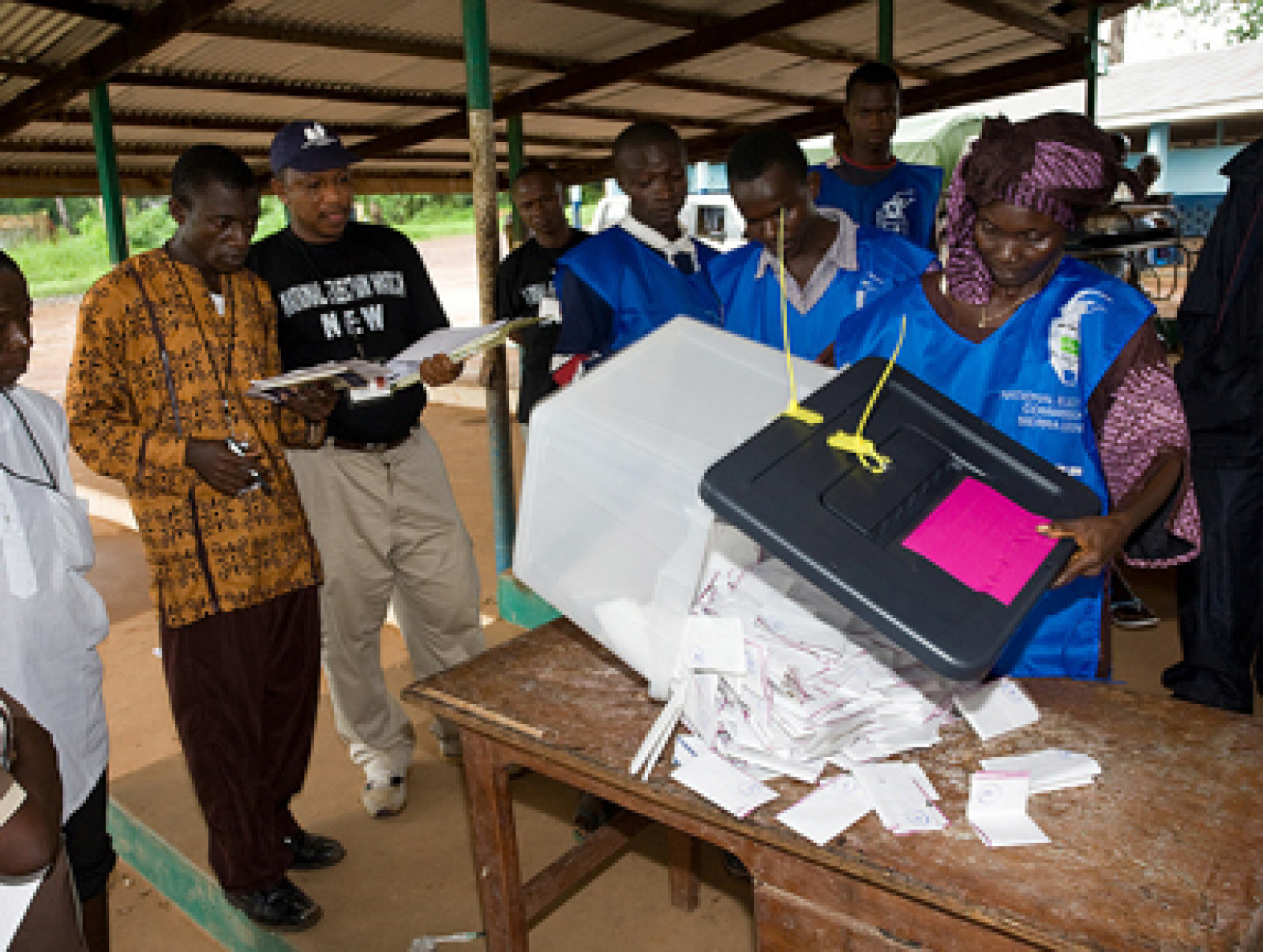
SHARE
Millions of people around the world who have organized to monitor elections in their own countries often must brave difficult conditions and personal risk in a quest for responsive and transparent governance. While they share many goals and practices, they have not had a way, on their own, to connect with one another and benefit from the knowledge of their counterparts. Instead, they have relied on organizations such as NDI to help them share lessons and experiences.
Enter the Global Network of Domestic Election Monitors, or GNDEM, born in 2009 and now connecting 140 member organizations from more than 60 countries. NDI spearheaded the effort to create GNDEM and currently manages the GNDEM.org website.
Launched last summer, the site provides easy access to more than 1,000 documents grouped into 39 priority topics identified by members. The topics range from how to maintain credibility and impartiality during observations to media strategies and the nuts and bolts of how to monitor various processes before, during and after elections.
The site also includes the Declaration of Global Principles for Nonpartisan Election Observation and Monitoring by Citizen Organizations, which was written and agreed upon by GNDEM member organizations. The effort to create and maintain global standards for domestic monitoring is similar to standards developed for international election observation adopted in 2005 and endorsed by 36 nongovernmental and intergovernmental organizations.
The Global Principles set standards for citizen observers. They are a tool for advocating for more rights for observers and for observers to be able to exercise those rights, said Darko Aleksov, secretary general of the European Network of Election Monitoring Organizations (ENEMO), which includes 22 monitoring groups from 16 countries in the former Soviet Union and Central and Eastern Europe.
“Citizen observation has become a movement. It’s not just a concept anymore,” Aleksov said. “Around eight million people in the world so far have been recruited, trained and deployed to be domestic observers on a voluntary basis. This [Global Principles] document is a product of what we have learned.”
Networks of monitoring groups from different regions in the world – including ENEMO, also a GNDEM member – have existed for some time to share experiences. But GNDEM is the first effort to bring these regional networks and individual groups together to share knowledge on a global scale.
“NDI has helped foster regional networks and connections among groups over its 25 years of assisting citizen election monitors in more than 75 countries,” said Pat Merloe, NDI’s director of electoral programs, and part of the idea behind GNDEM is to encourage greater direct peer-to-peer exchanges.
“Traditionally, NDI has been in the best position to share global developments in citizen election monitoring,” Merloe said. “For example, if monitoring election violence becomes important in a given country, we know that efforts in Sri Lanka, Guatemala and Zimbabwe provide useful models. We bring that knowledge to bear, often bringing activists together to share experiences or otherwise helping people make connections.”
These types of linkages are now beginning to happen through GNDEM. The Election Monitoring and Democracy Studies Center in Azerbaijan and the Egyptian Association for the Support of Democracy, for example, have sought the network’s help in distributing reports and press releases, while a coalition of groups in Liberia has asked for feedback on its preparations for general elections next October. Organizations like the DEMGroup in Uganda and the Bahrainian Transparency Association have featured their online mapping tools with the GNDEM community, sharing how they have incorporated new technologies into their monitoring methodologies.
Regional networking is also enhanced through GNDEM. The Center for Democracy and Development (CDD) in Ghana, for example, which monitors issues from economic reform to conflict mitigation and plays a leading role in nonpartisan election monitoring, has worked with help from NDI over the last year to launch the West Africa Election Observation Network (WAEON), representing citizen election monitors from 11 countries. CDD-Ghana recently hosted a study mission from the Central African Republic’s coalition of election monitors, which was preparing to observe that country’s 2011 general elections.
Another GNDEM member, the Lebanese Association for Democratic Elections (LADE), aims to improve the Lebanese electoral system and reinforce democratic electoral practices. It is working with other organizations in the Middle East and North Africa to launch a citizen election monitoring network to enhance the impact of election integrity efforts in that region. Like CDD-Ghana, LADE participated in developing the Declaration of Global Principles.
“International observation has long been effective in bringing global attention to a particular election,” Merloe noted, “but it cannot provide the deeper political understanding that citizen monitors bring, nor can it leave the lasting, substantial impact that so many citizen groups have created. After all, elections are about citizens’ rights to participate in public affairs and to establish accountable, representative governance.”
This story was originally published in the Spring 2011 edition of NDI Reports. You can read the entire newsletter here: www.ndi.org/NDI-Reports-Spring-2011/index.html. Please visit NDI’s complete newsletter archive at www.ndi.org/newsletter_archive to read newsletters dating back to 1987.


